10 Common Parenting Issues and Their Solutions

If you ask a parent about parenting, they’ll say, ‘It’s not a piece of cake!’ While that’s true, it is certainly not an impossible task either. Children are constantly learning new things as they grow up. While learning and exploring, they may encounter certain situations in their lives where you might have to step in and help them out. In all this process, you may feel like loosing cool or control, but that’s totally normal. Such scenarios often bring a bunch of parenting challenges that need attention. In this article, we are going to discuss some of the most common parenting issues or challenges and how to overcome them.
What is Meant By Parenting Issues?
Being a parent is both rewarding and tough, which comes attached to certain parenting issues. Parenting issues cover all the different problems and worries parents might have while raising their kids. These challenges can pop up at any time as children grow, and they can be affected by many things, such as looking after the kids, disciplining them, money, daily schedules, and chores around the house. But remember, every family is different, and what one family deals with might not be the same for another.
Most Common Parenting Problems and Ways to Overcome Them

Here are some common problems that parents face and ways to resolve them.
1. Shyness
As children grow up, they start meeting other kids in school and their neighborhood. Many engage readily with other kids, but a few of them prefer being aloof and shun any kind of engagement. Some kids may be extremely shy and slow to warm up to other children to make friends or converse with them.
Solution
The best way to handle this situation is to observe your child. If he actively refuses to engage with other kids, you can talk to him gently about making friends or so. At no point should you force him to converse with someone or play with somebody else. At times, two shy kids may also end up becoming friends. If despite everything, your child’s shyness doesn’t reduce, then you should cosult a child pshycologist (1).
2. The Digital Device Addiction
All our lives revolve around devices, but kids perceive digital devices in a different way. They will literally grab phones and video game consoles and stay hooked to them for hours at end. On refusing to give him or taking the gadgets away from him, your kid might get angry, impatient, or start crying uncontrollably.
Solution
Its parents who introduce children to the digital world, and as parents, it’s your job to introduce your kids to other activities that provide them with the same excitement or fervour that gadgets do. Outdoor activities and board games are a great alternative where you can participate as well. Try and enforce specific playing times or playing hours when your child can use their gadgets (2).
3. Improper Eating Habits
One of the most common parenting problems faced by parents is that their children often do not eat proper meals at the right time and in the right quantity. They will refrain from eating healthy vegetables and often opting for sweets and snacks stored in the house. Burgers, pizzas, and other junk foods hold their attention and your child would want to eat only those every time you step outside.
Solution
In such cases, forcing never works. Try talking to your child about the effects of continued consumption of junk foods. Show him examples of obesity and health issues. Include him in various activities of the kitchen and let him see how a nutritious meal is prepared. Also, instead of just preaching, be a model and eat with them (3).
4. No Mood for Studies
Every parent has had to struggle with their kid procrastinating on completing their homework or studying for an upcoming exam or simply being in touch with what has been taught. Most of the times, this is met with scolding the child or forcing him to sit and finish the chapter.
Solution
Try and talk to him about what he liked in school and inculcate a sense of curiosity and interest in that subject. If he is weak or unfocused in a particular subject, talk to him about how the knowledge can be applied with real-life examples. When it comes to studying, having a set routine works like magic. So try and implement a routine and follow it consistently. You may try extrinsic motivation like rewards in the form of ice cream or their favourite food to encourage them to study harder (4). However, this should not be the only way of motivating kids to study.
5. Constant Whining and Complaining
Nearly all children whine and complain to their parents. He might cry and whine for the smallest of things. Any small incident in school while playing with his friends or even at home might trigger him to complain and whine about it throughout.
Solution
It is important to know that the pure reason for complaining and whining is that your kid wants to know whether you are paying attention to him or not. It is best to talk with him the moment you hear him complain and offer a solution quickly. Gradually, educate him in communicating his issues the right way instead of whining all the time. Talk to him about how he himself can resolve certain problems of his own or together by communicating nicely what is stressing them and what do they want out of it (5).
6. Angry and Aggressive Child
This is quite a challenging issue and might be a result of various single-parenting issues as well. When your child’s actions go unchecked, he could develop into an angry child who screams and breaks things, constantly causing trouble and stress for himself and for you. The child may resort to violence as a way to get things done.
Solution
It is very rare that your child may not have a reason for their angry behaviour. It is important to remember that hey may not have the skills to communicate their distress that is turning into anger and lack knowledge on impulse control (6). Try talking to him to find out if there are any situations in the house or outside that cause him to be stressed and react in this manner. If the situation is dire and has been continuing for a long time, it is best to get him to an anger management counsellor for professional attention.
7. Lying
Nearly all children lie at one time or the other. You may even realise that your child is lying but don’t call him out on that. This results in him continuing to lie and developing it into a habit. Left unchecked, this could manifest in hiding important things from you as well. Starting as the manifestation of a fantasy world to becoming deceitful, it can have severe impact on children (7).
Solution
It is important to not scold or beat your child when he lies. Let him know that you can see the lie and talk to him about why it isn’t good. Ask him to not fear you while telling the truth, even if it might be where he may have committed a mistake.
8. A Rivalry Between Siblings
Sibling fights and arguments are something every parent takes for granted. But when they get out of control, these could manifest into hatred for each other. Moreover, constant fights can cause you a lot of trouble and ruin the atmosphere of the house. It could either be because of unequal attention, family dynamics, aggression, etc (8).
Solution
Intervene in the initial times to resolve the situation calmly and talk to them about how they could do the same as well. Let the first steps be to calm both the kids down and not blame one or the other for anything. Enforce a rule where any argument would end up as a penalty for both kids equally.
9. Disobedience
Disobience is a one of the most common parenting challenges. There are times when you ask your child to do something, and he straight-up refuses. Most parents interpret this as rudeness or being over-smart, but your child is primarily trying to establish his own importance and opinion. Creating a power dynamic of your superiority over him might cause him to be aggressive.
Solution
Having an opinion is a strong sign in your child. Talk to him about why what you’re asking of him is necessary, and listen to his side of why he doesn’t want to do it. Reason it out, and it would mostly work. Being calm will cause them to rethink what they’ve said an respond to you in a calm manner as well (9). If it starts getting rude, be firm and strict about it right away.
10. Consistent Tantrums
This is different from whining or complaining. When your child throws a tantrum, he will just start crying and not convey the reason behind it. He won’t listen to you or want to calm down and just create absolute chaos (10).
Solution
This is majorly a power dynamic at play and it is important to not lose your cool. Tell your child that you are ready to listen to him once he stops crying. Until then, continue with your own activities. Once he sees that his tantrum has no effect on you, he will stop and talk to you about what he really wants.
FAQs
1. What if I am a little late in addressing my child’s problem?
There is no need to panic. Since children are consistently in their growth stage, it is easy to influence them positively and corrcet your mistake.
2. What is the hardest phase of parenting?
There is no csuch criteria that defines a particular phase of parenting as the hardest. Instead, it depends on the individual cicrumstamces and the child’s requirements. For newbie parents, the starting stage of newborn care and toddler hood may feel the most challenging while for some teenagehood can be the most challenging as at this stage rebellion attitude of children is ar its peak. Therefore, it depends on the difficulties one faces during the parenting.
3. What is the best method of dicplining a child and making them responsible without scolding or being too lenient?
Here are some points you can follwo to achieve the desired results:
- Make rules that are easy to understand for your child’s age. Stick to them every time.
- If your child breaks a rule, let them know what will happen next, and make sure it’s fair.
- Praise your child when they do something good or try hard.
- Think of punishments that match your child’s age and what they did wrong.
- Sometimes, it’s good for your child to take a break and think about their actions. This is called a time-out.
Taking care of a child as he grows up is certainly a herculean task. The various parent-child relationship problems one faces during this journey can be difficult. Realizing that children are trying their best to cope up as well, is the key to being understanding, calm, and caring in helping take care of their problems.
References/Resources:
1. Children and shyness; BetterHealth; https://www.betterhealth.vic.gov.au/health/healthyliving/shyness-and-children
2. 10 Best Strategies to Stop Your Child’s Screen Addiction; University Hospitals; https://www.uhhospitals.org/blog/articles/2015/09/10-strategies-to-stop-screen-addiction/; September 2015
3. Picky Eating: How to Help Change a Child’s Food Habits; Nationwide Children’s; https://www.nationwidechildrens.org/family-resources-education/700childrens/2018/06/picky-eating
4. How to Help Your Child Get Motivated in School; Child Mind Institute; https://childmind.org/article/how-to-help-your-child-get-motivated-in-school/
5. How to Stop Your Child’s Whining; Nationwide Children’s; https://www.nationwidechildrens.org/family-resources-education/700childrens/2022/04/how-to-stop-your-childs-whining
6. Angry Kids: Dealing With Explosive Behavior; Child Mind Institute; https://childmind.org/article/angry-kids-dealing-with-explosive-behavior/
7. When Children Lie; American Academy of Pediatrics; https://www.healthychildren.org/English/family-life/family-dynamics/communication-discipline/Pages/When-Children-Lie.aspx
8. Sibling Rivarly; University of Michigan Health; https://www.mottchildren.org/posts/your-child/sibling-rivalry
9. The Disobedient Child; American Academy of Pediatrics; https://www.healthychildren.org/English/ages-stages/gradeschool/Pages/The-Disobedient-Child.aspx
10. Temper Tantrums; Stanford Medicine; https://www.stanfordchildrens.org/en/topic/default?id=temper-tantrums-90-P02295
Also Read:
Best Parenting Books
Tips to Be a Nurturing Parent
How to Improve Your Parenting Skills?
Bad Parenting Signs and Its Impact on Children
Was This Article Helpful?
Parenting is a huge responsibility, for you as a caregiver, but also for us as a parenting content platform. We understand that and take our responsibility of creating credible content seriously. FirstCry Parenting articles are written and published only after extensive research using factually sound references to deliver quality content that is accurate, validated by experts, and completely reliable. To understand how we go about creating content that is credible, read our editorial policy here.







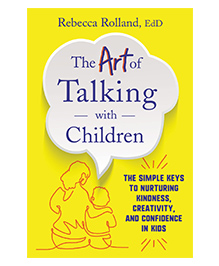
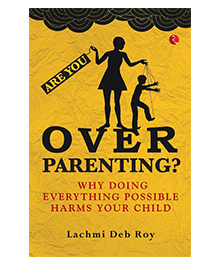
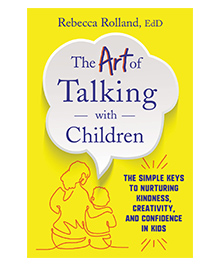
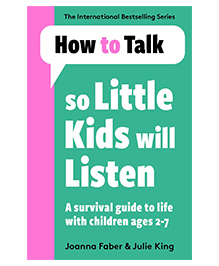

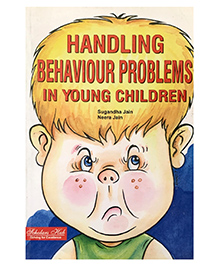








.svg)


















